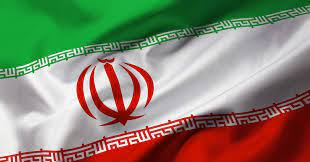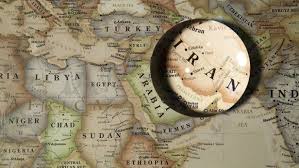Alfa Laval pays over $432K for Violations of OFAC’s Iran Sanctions Program

In two separate enforcement actions, OFAC announced settlements with Alfa Laval Middle East Ltd., a Dubai, UAE company (AL Middle East), and Alfa Laval, Inc., a Virginia-based company (AL US) for violations of OFAC’s Iran Sanctions Program. AL US enlisted its then subsidiary (now operating unit), Alfa Laval Tank, Inc, based in Exton, Pennsylvania (AL Tank), to participate in the scheme.
The Alfa Laval enforcement action underscores the dangers for global companies in compliance with US-based sanctions programs as part of global operations. The parent company, Alfa Laval AB is based in Sweden (AL Sweden). AL Middle East agreed to pay OFAC $415,695, and AL US agreed to pay OFAC $16,875.
OFAC’s settlement announcement sets out a detailed course of conduct. In particular, OFAC concluded that AL Middle East conspired with Dubai and Iran-based companies to export Gamejet brand storage tank cleaning units from the United States to Iran. AL US (through AL Tank), the US company, was not aware of the full scope of the conspiracy but referred a known Iranian business opportunity to its foreign affiliate in Dubai, which then orchestrated the conspiracy including AL Tank to export Gamejet brand cleaning units from the United States to Iran.
The Conspiracy
At the core of the conspiracy, during the period between May 2015 and March 2016, AL Middle East with the assistance of other related companies, arranged the export of Gamajet brand storage tank cleaning units from the United States to Iran. Specifically, AL Middle East caused AL Tank to indirectly export goods from the United States to Iran by falsely listing a Dubai-based company (Dubai company) as the end-user on its export documentation. The scope of the conspiracy included additional incomplete and contemplated export transactions with Iran that would have employed the same scheme.

On May 27, 2015, Alborz Pakhsh Parnia Company (“Alborz”), an Iranian distributer of oil products, emailed AL Tank to inquire about purchasing its Gamajet cleaning units, which are automated machines used to remove residual fuel, dirt, and sludge from storage tanks. The email explicitly disclosed that the company was based in Iran. AL Tank’s manager for tank cleaning equipment responded to Alborz the same day by recommending AL Tank products, providing pricing information, product descriptions and specifications, and offering to provide a quote. After follow up emails, on June 17, 2015, lborz asked the portfolio manager at AL Tank, “is there the possibility of delivery to our country,” referring specifically to Iran.
On August 7, 2015, AL Tank’s portfolio manager forwarded the email to a tank cleaning portfolio manager at Alfa Laval Denmark (“AL Denmark”), asking “who would be the best contact for Iran for an oil&gas [sic] inquiry?” AL Denmark recommended a sales manager at AL Middle East, who in turn recommended the AL Middle East regional manager.
Following the referral, a sales manager for AL Middle East and the general manager of Iran-based Alfa Laval Iran Co. Ltd. (“AL Iran”), another Alfa Laval AB subsidiary, communicated with Alborz about routing sales to Iran through a Dubai company with which AL Middle East had an existing distributor relationship. Under the plan they developed, the Dubai company would be falsely named as the end-user on export documents.
In late January 2016, the AL Middle East sales manager traveled to Iran to meet with Alborz, where they further discussed how to procure the Gamajet cleaning units from the United States. On February 23, 2016, the owner of the Dubai company emailed the sales manager and a senior sales engineer for AL Middle East a memo from Alborz (the “Alborz memo”), confirming that “[Alborz] is one of the oil products distribution company [sic] at gas stations in Iran,” and outlined steps to procure U.S.-origin goods from AL Tank and reexport them into Iran involving AL Iran, AL Middle East, and the Dubai company, while keeping AL Tank in the dark regarding the ultimate destination of the units. AL Tank never learned the full scope of the plan.
On March 5, 2016, the senior sales engineer at AL Middle East sent the Dubai company a pro forma invoice for Gamajet products worth $18,585.36. The next day, “[the Dubai company] requested its bank to transfer $18,585.36 to AL Middle East in payment for the Gamajet equipment ultimately destined for Alborz in Iran,” as stated in the memo from the Dubai company to a bank in Dubai.

Two days later, on March 7, 2016, the portfolio manager for AL Tank sent the senior sales engineer at AL Middle East an updated “Gamajet Quotation Invoice,” which increased the number of Gamajet products from one set of Gamajet cleaning machine and accessories to two sets at the request of the Dubai company. The following day, the senior sales engineer at AL Middle East confirmed the order, and the portfolio manager for AL Tank told the senior sales engineer at AL Middle East to send the purchase order to AL U.S.’s Americas Distribution Center. The portfolio manager for AL Tank also asked the senior sales engineer at AL Middle East for the name of the end user, to which the senior sales engineer at AL Middle East replied, “this machine is for [the Dubai company], UAE.”
On March 26, 2016, AL Tank exported two Gamajet cleaning machines and accessories to the UAE for subsequent delivery to the Dubai company. The Dubai company then supplied the Gamajet products to Alborz in Iran, consistent with the plan outlined in the Alborz memo. Shortly after the March 26, 2016, export, AL Middle East began organizing additional sales of Gamajet cleaning units on behalf of Alborz in the same manner as the initial sale.
The conspiracy came to an end when the U.S. Department of Commerce’s Bureau of Industry and Security (BIS) requested post-shipment verification from AL Tank on April 12, 2016, shortly after the first export transaction was completed. The post-shipment verification report found that, according to documentation from the Dubai company, the tank cleaning products in question were reexported to Iran on April 2, 2016.

OFAC underscored two points: (1) the importance of its enforcement action for global companies and the specific need to ensure that subsidiaries and affiliates are trained on U.S. sanctions requirements, can effectively identify red flags, and are empowered to report prohibited conduct to management; and (2) implementing effective compliance training to ensure U.S persons know they are generally prohibited from referring business opportunities involving Iran, including to affiliated entities. Such referrals may also increase the likelihood of other, additional sanctions violations being committed.















